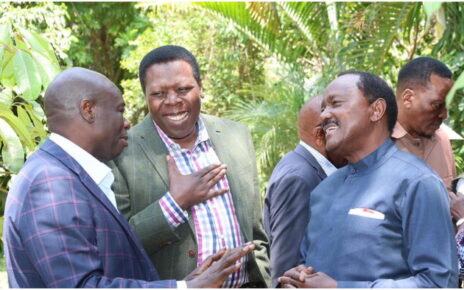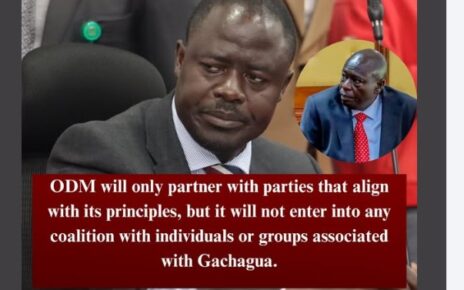Prime Cabinet Secretary Musalia Mudavadi has launched a scathing attack on former Interior Cabinet Secretary Dr. Fred Matiang’i, questioning his credibility and right to criticize the current administration. Mudavadi’s remarks have sparked a heated debate, reopening old wounds about one of the darkest periods in Kenya’s recent security history.
Speaking during a public function, Mudavadi wondered how Matiang’i could present himself as a moral authority on governance and security matters, yet his tenure was marred by incidents that shocked the country.
“Where does Matiang’i get the moral authority to challenge the government when he has many questions to answer?” Mudavadi asked, drawing murmurs from the audience.
He reminded Kenyans of the disturbing and controversial cases that unfolded when Matiang’i was in charge of the powerful Interior Ministry. Foremost among these was the chilling discovery of hundreds of unidentified bodies in River Yala, a matter that raised serious concerns about alleged extrajudicial killings and disappearances.
Mudavadi noted that while some voices now praise Matiang’i for being a firm and decisive CS, many Kenyans still associate his era with fear, intimidation, and claims of heavy-handedness by security agencies.
According to Mudavadi, it is hypocritical for Matiang’i to criticize or challenge the current leadership without first addressing the unresolved questions surrounding his own record.
He argued that leadership should be consistent, transparent, and accountable—qualities he believes Matiang’i must demonstrate before lecturing others.
Mudavadi’s harsh comments have triggered varied reactions. Supporters of the Kenya Kwanza government applauded his boldness, saying it was time someone confronted Matiang’i over what they termed “selective amnesia.” Critics, however, dismissed his remarks as political theatre aimed at diverting attention from current national challenges.
The renewed confrontation underscores the deep political and personal rivalries that continue to shape Kenya’s political landscape. It also brings back to the surface the painful memory of the Yala River bodies, an issue that many human rights groups still insist demands justice and accountability.
As the political temperatures rise, Mudavadi’s remarks ensure that the debate around Matiang’i’s legacy — and the accountability of former government officials — remains far from over.


